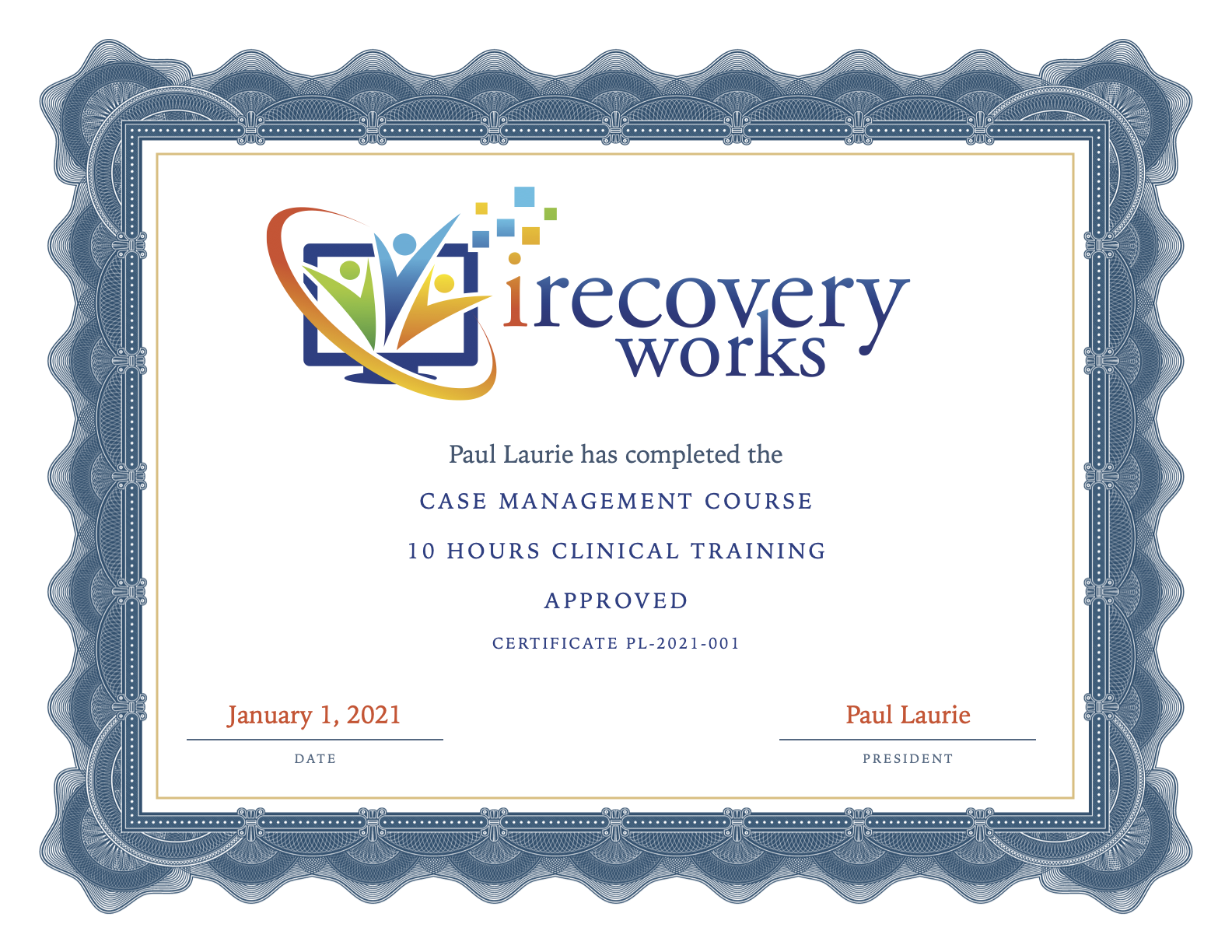Courses
Case Management
Case Management Course
iRecovery Works has developed a 9 session course with a 25 question multiple choice exam as the student testing component. Our aim is to provide counsellors in need of hours to gain CEU’s to certify or re-certify.
GOAL OF COURSE
This course will examine the complexity of case managing clients who have a diagnosis of substance abuse. With each passing year, clients have become increasingly complex, burdened with layers of issues that did not exist or were not identified within the 20 years ago. This course will provide knowledge to addiction counsellors to navigate through the issues to facilitate healing for our client.
CACCF APPROVED 10 HOURS-CORE ADDICTION
Case Management is the seventh skill listed in the global Criteria which states:
Case management can be defined as activities that bring services, agencies, resources or people together within a planned framework of action toward the achievement of established goals. It may involve liaison activities and collateral contacts.
There are two Global Criteria, numbers 28 and 29 that identify each skill and process for the counsellor to show competence within case management. The criteria are as follows:
28. Coordinate services for client care.
29. Explain the rationale of case management activities to the client.
From the Standards and Certifications Manual, this course is directed toward providing knowledge for the counsellor in the area of 4.1 Knowledge Expected of the Certified Counsellor.
This course is specifically targeting the areas of section F, The Continuum of Care sections 1 through 5.
1. Knowledge of the mechanisms involved in coordinating a client’s total treatment.
2. Knowledge of the techniques and strategies for crisis resolution.
3. Knowledge of the services (prevention, intervention, treatment, continuing care, selfhelp groups, etc.) available to the client and to the community, including the limitations of each service.
4. Knowledge of the relevant social services (financial, marriage, vocational, sexual counselling, etc.) which are not designed specifically for the alcohol and other drug abuser, including knowledge of client eligibility, referral procedures, follow-up mechanisms and the limitation of each service.
5. Knowledge of the philosophy, policies and practices of appropriate and voluntary self help groups.
SESSION OUTLINE
1.Introduction to the course
2.The role of the addiction counsellor;
a.Within an agency
b.Private counselling
3.Assessment
a. Identifying the significance of the substance use
b. Listing and ranking all the secondary issues needing to be managed
4. Identifying all relevant resources needed for each client
a. Developing short and long term goals
b. Creating a budget regarding the resources needed
c. Connecting the resources to the goals, budgets and ongoing counselling
5. Managing criminal issues
a. Dealing with lawyers
b. Parole officers
c. Sentencing
6. The role of continuing care
a. Group based
b. Individual therapy
7. Returning within home community
a. Work
8. Working with the family
a. Identifying high risk situations in the family
b. Dealing with substance abuse disorders in the family
c. Adult children of alcoholics dynamics
d. Family counselling, referrals or counselling
9. Accessing Community Resources Specialists
a. Medical Specialists
b. Self Help Groups
10. Student testing component. 25 multiple choice questions
Lessons
Quiz
Meet Our Teacher

